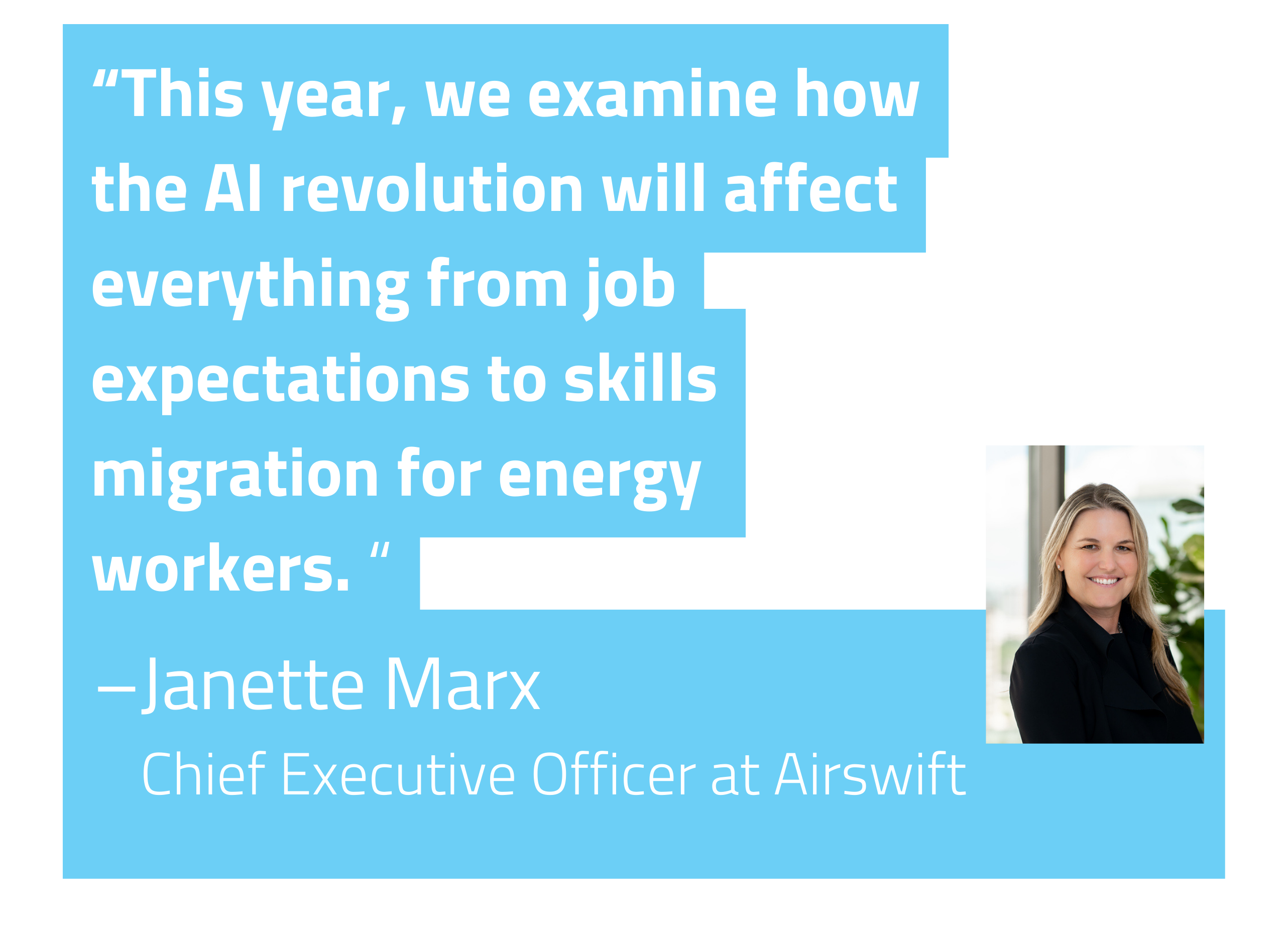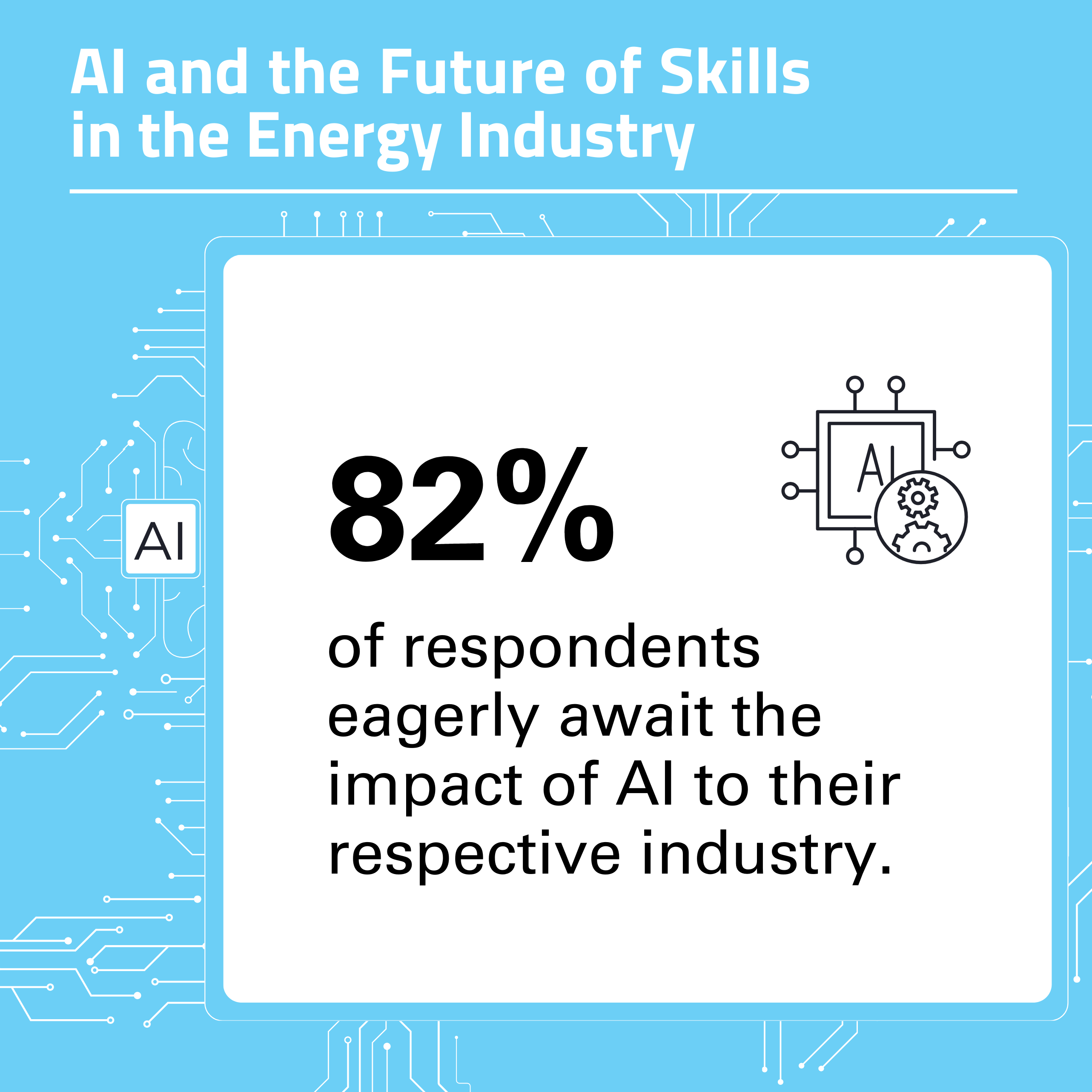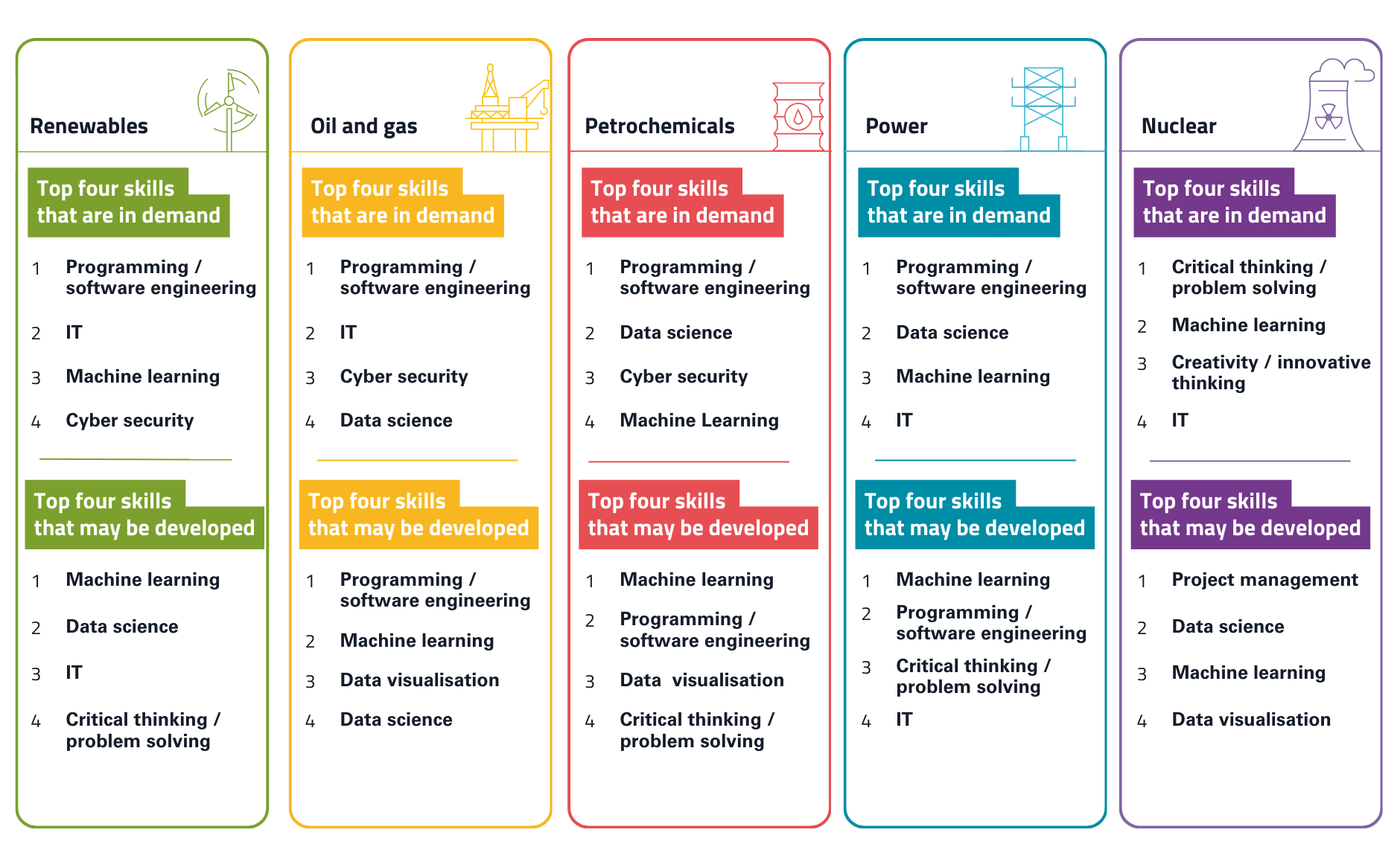Global Energy Talent Index
GETI uncovers the latest workforce trends in oil and gas, renewables, nuclear, power and petrochemicals
GETI 2024: Energy workers say AI will drive demand for human skills
The Global Energy Talent Index (GETI) was launched in 2017 to chart emerging trends across the global energy workforce. GETI has since drawn on insights from tens of thousands of professionals to create a comprehensive map of a changing energy landscape and give companies the tools to retain and refresh their skills base.
This year’s report explores how the rise of artificial intelligence (AI) is reshaping everything from job roles to skills in demand and whether workplace policies and training priorities are keeping up. We track the extent of AI adoption, popularity and policy awareness across the industry and anticipate the major risks and opportunities it presents.
This report surveys an industry on the cusp of a technological revolution. Popular technologies from AI language models to autonomous vehicles are transforming processes from production to inspection. A tech-savvy, young generation accustomed to tools including AI chatbots has turned access to innovations such as AI into a key driver of talent migration.
As global skills shortages increase demands on existing workers, automating repetitive tasks could free up time and boost work/life balance. Amidst flatlining productivity, automation could augment the cognitive capabilities of all workers.
Yet AI also introduces many new risks. As algorithms consume great quantities of corporate data, they create cyber security concerns. With AI innovation happening at a rapid pace, there are risks of misuse or poor adoption. Automation could also come at the expense of human interactions.
Janette Marx, CEO of Airswift notes, "This year, we examine how this AI revolution will affect everything from job expectations to skills migration for energy workers."

Amidst the many risks and opportunities, some key trends have begun to take shape
Training must keep pace with AI
Some employees have yet to read their employers’ AI policies, and many fear that lack of training could result in misuse or poor adoption.
If workers are not encouraged to develop in-demand AI skills from cyber security to communication, an AI skills gap may emerge in the future. Widespread confusion around which AI tools offer the best fit for each company also indicates a lack of education and knowledge as a barrier to adoption.
Meanwhile, a lack of in-house AI skills could expose energy companies to new risks from data breaches to misuse, while increasing labour costs for in-demand roles such as cyber security.
AI adoption should be a focus for recruitment and retention
Access to innovations such as AI is now among the top three drivers for relocation in some sectors and thus increasingly key to recruitment and retention. Energy workers are overwhelmingly optimistic about AI. They believe it could free up time for soft skills development, strategic tasks, and families while boosting job satisfaction, productivity, and career progress. Yet most workers still do not use AI in their jobs.
With technology the most popular outside industry for energy workers to join, late adopters of AI risk losing their staff to more technologically innovative competitors.

AI will increase the demand for human skills
Far from replacing human workers, the march of the machines is expected to create new gaps in the market for human skills from cyber security to The majority expect AI to increase demand for technical skills from data science to software engineering. With machine learning models unable to think outside their training data, employers may put a premium on lateral thinking with projected demand for soft skills such as creativity and critical thinking. This could remould energy industry job specs and bring in new skills from creatives to robotics technicians.

Hiring managers can turn these trends to their advantage, by considering the following actions
Align training with AI demands
Employers should harness training to embed best practices across the workforce with AI awareness treated as equivalent to health and safety awareness.
In-house skills development and certifications should be aligned with in-demand skills such as cyber security and robotics while completion could be tied to incentives to ensure in-house skills keep pace with the AI revolution. Companies could democratise digital skills through entry-level, user-friendly AIs such as ChatGPT, rules-based and explainable AIs that explain their workings or open-source AIs, lowering barriers to workforce adoption.
Roll out AI across the workforce
With access to innovations such as AI now the biggest driver behind relocation among 18–24-year-old energy workers, rolling out AI across the workforce could help retain a new generation who value innovation. This could also help prevent an exodus of skills to popular adjacent
With ambitions for career progression as one of the main reasons for leaving jobs, employers could also harness AI to free time for higher value-adding work and accelerate promotions.
Automation could be used to boost job satisfaction and talent retention by augmenting the cognitive capabilities of all workers or reducing workloads to improve work/life balance.
Redesign employer brands to recruit from outside industries
With over 90% across all sectors expecting AI to increase demand for human skills, energy companies should consider redesigning recruitment checklists and widen recruitment nets to attract the digital and soft skills needed for AI.
Employer brands should emphasise innovation and ESG reinforced with values statements to attract a younger generation. For example, promoting the opportunity to apply AI to environmental challenges such as optimising renewable production could help attract a new wave of young, eco-conscious AI talent from industries such as technology.
Hiring managers can harness AI’s potential by aligning training with AI demands, supporting the integration of AI across the workforce, and redefining employer brands to attract diverse talent.
These steps will help energy companies not only keep up with technological advancements but become pioneers, attracting and retaining a skilled workforce ready for the challenges and opportunities of AI.